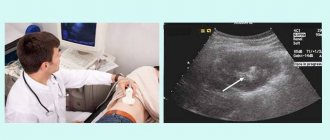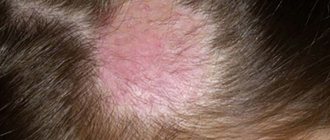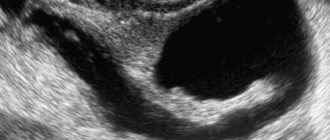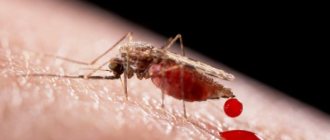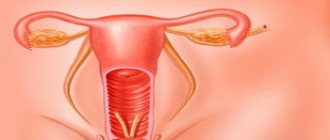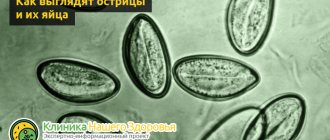- If menopause occurs before the age of forty, it is called premature ovarian failure.
- In the mid-twentieth century, for the treatment and prevention of early menopause, hormonal therapy was created, which includes synthetic analogues of female sex hormones (estrogen and progesterone).
- The likelihood of menstruation and ovulation occurs in one quarter of women suffering from early menopause.
- Early menopause occurs on average in 1.6% of women.
- Women who have given birth are more protected from early menopause than women who have not given birth.
Symptoms of early menopause
There are symptoms that indicate that a woman is susceptible to the onset of this disease.
Failure of the menstrual cycle.
It can either decrease or increase. It all depends on the woman’s body. The amount of discharge itself also decreases. Every day there will be fewer and fewer of them;
Sudden hot flashes.
With early menopause, this symptom is observed in all women. When the tide comes, the woman begins to sweat, her face, neck, and chest become redder. Your blood pressure may rise and your heart will begin to beat rapidly. Women may also experience nausea, fear, and difficulty breathing. The tide itself lasts about 4 minutes, but can appear 20-30 times during the day;
Symptoms of early menopause: sudden hot flashes
Emotional disorder.
The disappearance of sex hormones leads to a failure in the synthesis of serotonin. This hormone is responsible for positive emotions. Therefore, the woman becomes psychotic, she is irritated by any situation. She may start crying for no reason. Also, ladies may be half asleep. If you do not control yourself during this period, there is a high risk of falling into a depressive state;
Symptoms of early menopause: depression
Increase in body fat.
As the body experiences stress, it begins to build up fat tissue. After all, it is in adipose tissue that the female hormone is produced. Therefore, poor nutrition and decreased activity can lead to obesity, which can lead to health problems in the future.
Clinical picture and consequences
Signs of early menopause
- Disruption of the menstrual cycle, prolongation of the interval between menstruation, decrease in the volume of discharge and complete cessation of menstruation (amenorrhea).
- Infertility.
- Manifestations of estrogen deficiency.
Stopping menstruation is one of the earliest symptoms of ovarian failure. Amenorrhea is said to occur if there has been no menstruation for at least six months. If they occur more often, but less than once every 35 days, this condition is called oligomenorrhea. It also speaks of the approach of early menopause. Amenorrhea is secondary, that is, before its onset, the woman had a normal menstrual cycle.
An important sign of menopause is infertility - the inability to get pregnant. It is secondary in nature and is associated with damage to the female gonads. A decrease in the production of sex hormones in the ovaries through a feedback mechanism causes an increase in the release of follicle-stimulating hormone (FSH) by the pituitary gland, the concentration of which in the blood increases significantly. The level of this hormone is used to determine the degree of inhibition of the activity of the gonads. If the FSH concentration exceeds 20 U/L, then pregnancy is almost impossible.
Symptoms of early menopause are also caused by a decrease in the effect of estrogens on all organs and tissues. They resemble the usual menopause, but are more pronounced:
- feeling of heat, redness of the face, sweating, sudden attacks of shortness of breath - the so-called “hot flashes”;
- disorders of the emotional and mental sphere - irritability, tearfulness, sleep disturbance, difficulties with remembering and analyzing information, decreased performance;
- damage to the heart muscle with the development of dyshormonal myocardial dystrophy, which is manifested by interruptions in the work of the heart, shortness of breath when walking, stabbing pain in the left half of the chest without connection with the load, various types of discomfort in the chest, sometimes long-lasting and quite strong;
- dryness of the vaginal mucosa, burning and itching in the external genital area, urinary incontinence when coughing, laughing, or sudden movements.
https://youtu.be/ezllAEVsj6U
Consequences of pathology
Due to a premature hormonal imbalance, a woman develops the consequences of early menopause, which significantly reduce her quality of life for many years:
- osteoporosis;
- atherosclerosis;
- autoimmune processes.
Osteoporosis and osteopenia are conditions caused by estrogen deficiency. As is known, under the influence of these hormones, bones absorb minerals from the blood, primarily calcium. In addition, estrogens stimulate the production of calcitonin, another hormone that strengthens bone structure.
When the level of female sex hormones decreases, calcium stops entering the bone tissue, despite its high content in the blood. At the same time, the processes of bone resorption, that is, “resorption,” intensify. The bones eventually lose their strength and pathological fractures occur. Even with a minor injury or an unsuccessful turn, a woman can receive a fracture of the femoral neck, radius, or compression fracture of the spine. Symptoms of osteoporosis include decreased height, bone and back pain, and changes in posture.
Estrogens protect women from the development of atherosclerosis. When they are deficient, low-density lipoproteins (“bad cholesterol”) actively damage the vascular wall, causing inflammation and the formation of atherosclerotic plaques in the arteries. The consequence of early atherosclerosis is heart attack, stroke, thrombosis of mesenteric vessels and other vascular diseases.
Atherosclerosis of the coronary vessels causes the development of coronary heart disease. It is rare in young women, but with early menopause the incidence of the disease increases significantly. Myocardial ischemia is manifested by pressing or burning pain behind the sternum, which occurs when walking or climbing stairs and quickly passes after stopping.
Why is early menopause dangerous for other organs? If it is caused by the so-called resistant ovarian syndrome, it is often accompanied by other autoimmune processes. When the thyroid gland is simultaneously damaged, autoimmune Hashimoto's thyroiditis develops. This disease can manifest itself as signs of hypo- and hyperthyroidism. The activity of the heart, nervous system, and digestion is disrupted, and the condition of the skin and hair deteriorates. Autoimmune alopecia – baldness – also occurs in such patients. Autoimmune thrombocytopenia is accompanied by bleeding from minor injuries, the formation of bruises on the skin and mucous membranes.
Type 1 diabetes mellitus and Addison's disease (adrenal insufficiency) are of an autoimmune nature. These are serious conditions that can lead to disability and even death of a woman.
Causes of early menopause
As with other diseases, so with menopause, there are reasons why this phenomenon may occur ahead of schedule.
Autoimmune disorders.
These are disorders in which a woman’s body does not recognize her ovaries. It begins to destroy them, and eventually the work of the ovaries stops;
Chemotherapy and radiation.
The most important cause of the disease is oncology. Strong drugs are used to combat this disease, and in the final stages chemotherapy and radiation are used. This stops the ovaries from working. Menopause in this case may occur 13-16 years earlier than usual;
Unhealthy Lifestyle.
Both smoking and drinking strong drinks have a detrimental effect on ovarian function. Scientists have found that 20% of women are experienced smokers;
Stressful situations.
Anxiety, fear, depression, all this leads to exhaustion of the body. As a result, the ovaries malfunction, which leads to the early onset of menopause.
Heredity.
This disease can be transmitted hereditarily. Every woman has two chromosomes, deviation from the norm leads to hormone disruption.
Operation.
Removal of the ovaries, as well as operations on the uterus, cause the disappearance of the menstrual cycle.
Operation
Why does menopause come early?
Recently, more and more women are experiencing the first manifestations of menopause before the age of 40. This may be due to many factors. The most common causes of early menopause include:
- Unfavorable environmental conditions.
- Chronic effects of stress and emotional overstrain.
- Smoking and drinking alcohol.
- Hereditary predisposition.
- Gynecological diseases, especially ovarian pathology.
- Autoimmune pathology.
- Diseases of the endocrine system, including pathology of the thyroid gland and pituitary gland.
- Frequent childbirth and abortion.
- Taking hormonal and contraceptive medications without direct indications.
The causes of artificial menopause are discussed separately, when hormonal changes in the body are associated not with the depletion of the ovaries, but with the consequences of surgical intervention.
Diagnosis of early menopause.
Early detection of the onset of menopause can prevent the development of serious diseases. It is imperative to visit a gynecologist. During the examination, the doctor will write out a referral for tests that must be taken as soon as possible.
First of all, a blood test is taken for estradiol. The normal level is 37 mol/l, but during menopause the levels decrease significantly. During early menopause, the hormone level is constantly elevated.
It is also necessary to undergo a comprehensive examination. As a result, the degree of efficiency of the ovaries can be determined.
Premenopause
This is the first period of menopause, its main symptom is an altered menstrual cycle. On average, the onset of this stage occurs at 40-45 years, and premenopause lasts 2-10 years , while the monthly cycle can behave completely differently all this time:
- The period between menstruation may increase, and discharge may also decrease;
- On the contrary, there may be more profuse bleeding during menstruation, which disappears in at least a week;
- the cycle may even end. This is a fairly rare case, but possible, when a woman suddenly loses her period.
Comprehensive examination
Cytological examination.
In this case, a smear is taken from the cervix to identify the cell structure.
Ultrasound of the pelvis.
This will help determine the number of follicles in the ovaries.
Vaginal ultrasound.
This examination will help identify the presence of pathology in the endometrium.
X-ray.
It will help you find out your bone density level.
It is imperative to visit a gynecologist.
Treatment of early menopause
If this disease is confirmed, the doctor prescribes medications that must be used so as not to worsen the situation.
1. Divina. These tablets contain the hormone estrogen. It helps reduce hot flashes;
2. Ovestin. This drug also fights hot flashes. May relieve vaginal dryness;
3. Angelique. During early menopause, women are bothered by insomnia. So, this drug will normalize sleep and also relieve dizziness, nervousness and irritability.
In addition to pharmaceuticals, there is also traditional medicine.
Sage infusion is very popular. To prepare it, you need to pour 100 grams of sage into 300 ml. hot water. Leave this composition for 30 minutes. Then apply 50 grams in the morning and evening. Helps normalize hormonal levels.
You can also make blackberry tea. You need 2 tbsp. spoons of blackberries pour 300 ml. water. Let stand for 15 minutes. It is recommended to use morning and evening instead of tea. This tea strengthens the nervous system and has a calming effect. Regular use will strengthen the body and normalize sleep.
Blackberry tea
For surgical menopause , which occurs when the uterus is removed or another operation, special treatment is necessary. Doctors may prescribe hormonal pills. They will prevent dysfunction of organs that are associated with deficiency of sex hormones. A woman also needs to take a vitamin complex.
Treatment of menopause with stem cells
When treating menopause, women often resort to stem cell therapy. The therapy is unique in that it has the ability to regenerate cells and systems of the female body.
Stem cells help rejuvenate the body. Due to the complete renewal of all internal systems and organs, the endocrine system operates in a normal rhythm. The therapy also increases testosterone levels in the blood.
When does menopause occur?
The onset of menopause is considered timely at the age of 45-55 years. However, the ovarian reserve can be depleted earlier, up to 40-45 years, in this case we are talking about early or premature menopause. Moreover, regardless of age, menopause occurs gradually; it can be divided into 3 stages - menopausal transition, menopause and postmenopause. An exception is artificial menopause, when the appearance of menopause symptoms is associated with the removal of the uterus and appendages during reproductive age.
Early menopause is said to occur before the age of 45.
Premenopausal period
The menopausal transition is characterized by a gradual decrease in estrogen production by the ovaries; with early menopause, this period occurs before the age of 40. The female body is trying to adapt to decreased production of sex hormones. The main symptom of premenopause is menstrual irregularities – periods become irregular and cycle length increases. At this stage, the first symptoms of menopause may appear - hot flashes, a disturbance in the psychological state.
Menopause period
The period of menopause is characterized by the cessation of menstruation. On average, menopause occurs at the age of 50 years, with early menopause - up to 45 years. Menopause lasts 1 year from the last menstrual period. During this period, the hormone-producing function of the ovaries fades, and the level of estrogen in the blood decreases significantly. In this regard, the woman is worried about climacteric syndrome - vasomotor and psycho-emotional symptoms, disorders of the urogenital tract. Changes occur in metabolism, which often leads to weight gain.
Postmenopausal period
The postmenopausal period begins one year after the last independent menstruation and lasts until approximately 70 years of age, when estrogen production completely stops. At this stage, the body has already adapted to hormonal changes. Vasomotor and psychoemotional symptoms are usually no longer a concern, but the risk of damage to the cardiovascular system and bone tissue increases.
How to delay menopause
There are several ways that can delay menopause: 1. Natural therapy;
Natural therapy occurs through an active lifestyle. Every year it is necessary to visit a gynecologist, therapist and endocrinologist. Get tested regularly and also do an ultrasound of the thyroid gland. Try to avoid stressful situations, eat right, and stick to a proper daily routine.
Hormonal therapy;
Hormonal therapy involves taking hormonal medications prescribed by your doctor. To delay this disease, the doctor may prescribe special medications. These are drugs that contain the sex hormone estrogen. Herbal infusions are also good at preventing the aging process. Immunity will soon be restored.
Application of traditional medicine recipes.
Hormone therapy
How is traditional medicine used for treatment?
Treatment of early menopause in women with the help of folk remedies is possible after consultation and obtaining permission from the attending physician. For this purpose the following can be used:
- clover;
- hog uterus;
- hop cones;
- red brush;
- angelica leaves.
Mint leaves, linden buds, as well as parts of wormwood and hawthorn plants can be added to the medicinal mixtures. They stabilize the functioning of nerve structures and a number of endocrine glands.
From this video you will learn more about early menopause:
https://youtu.be/5FuF_TI5Lnc
FAQ.
Is it possible to restore periods?
Can. It is necessary to use drugs that increase the level of sex hormones in the body.
Is it possible to get pregnant?
Menopause does not occur immediately. This happens gradually, so the possibility of getting pregnant, although small, is there.
How to increase libido?
There are medicated creams for these purposes. They must be used before sexual intercourse; they eliminate vaginal dryness and relieve discomfort. Since there are no hormones during menopause, this leads to changes in bone tissue. Estrogen increases its elasticity, and due to its absence, bones weaken and osteoporosis occurs.
What medications can be prescribed
To treat early menopause, drugs that affect hormonal factors in the female body are used. These include:
- Hormone replacement drugs. These drugs contain gestagens, estrogens and androgens. Among them, the most effective are Duphaston, Femoston, Estrofem and Kliogest.
Taking Cliogest can help
- Phytoestrogenic drugs. They are used to stop early menopause if there are contraindications to HRT. Representatives of this group are Glabridin, Entrolactone, Cumestrol and Pycnogenol.
Also among the effective drugs for early menopause in women are estrogen-containing agents for topical use. Among them, Klimara, Divigel and Ovestin are most often used.
This is useful: the use of vitamins during menopause.
Prevention of menopause
Prevention of menopause can begin at an early age. It includes:
- Balanced diet.
- Rejection of bad habits.
- raw vegetables.
- Active lifestyle.
- Refusal of diets.
- Intimate hygiene.
By observing and following all the simple recommendations, you can prevent the early onset of menopause. Less stress, more positive emotions. A healthy diet and exercise will make the female body young, strong and healthy. And women learn about the disease only after reaching 50 years of age.
Less stress, more positive emotions.
- 82
Shared - 35
- 3
- 44
What prevention is possible
There are no specific measures to prevent early menopause. At the same time, there are rules that reduce the likelihood of developing pathology. Among them are:
- avoidance of stressful situations;
- careful conduct of sexual life;
- constant physical activity;
- balanced diet;
- timely birth.
Moderate exercise is very beneficial.
Early menopause is not a death sentence. Modern diagnostic methods make it possible to detect pathological processes in the first stages of their development, which makes it possible to prescribe the most effective treatment tactics and restore menstruation in early menopause. This will prevent possible complications and keep the woman healthy.
Effective treatments
The point of treatment for early menopause is not only to take hormonal and other medications, but also to change your lifestyle. For each woman, the treatment complex will be individual, depending on the characteristics of her body, as well as existing diseases.
One of the most effective treatments for premature menopause is hormone replacement therapy, but it is not suitable for everyone. Taking hormonal drugs may be contraindicated in case of cancer, problems with the liver, gall bladder, diabetes mellitus, thrombophlebitis. The essence of this treatment method is to equalize the hormonal balance and increase the production of estrogen. It is important to choose the right drug, as you may encounter various side effects: swelling, chest pain, etc. Treatment may be with estrogens or gestagens or a combination thereof. The first option is especially relevant for women who have had their uterus removed. Synthetic hormones can be not only in tablets, but also in the form of patches, gels with estradiol and other products.
In addition to or instead of hormonal drugs for menopause, drugs based on plant extracts can be used to treat it. It can also be herbal preparations that have a positive effect on the reproductive system due to phytoestrogens. Such drugs help eliminate the symptoms of early menopause.
The treatment package may also include drugs that improve the overall quality of life. These include drugs that lower blood sugar levels, antidepressants, dietary supplements, and homeopathic medications.
Another experimental treatment that has recently emerged is the use of stem cells to restore ovarian function. If a woman is planning to have a child, but the first signs of early menopause have already begun to appear, pluripotent cells can be used. You can also freeze your own egg for future surrogacy.
If a woman is no longer planning a pregnancy, then treatment is largely aimed at eliminating and preventing unpleasant symptoms. Also important is the prevention of cardiovascular diseases, strengthening bones, the immune system, and normalizing carbohydrate and lipid metabolism.
Also, during menopause, the emotional state is important, so experts recommend doing yoga, meditation, light fitness or other physical activity, which will bring not only positive emotions, but also help avoid weight gain, and during menopause, body weight grows much faster. Proper nutrition and giving up bad habits are also important.
Is it possible to get pregnant
One of the most important questions among young women who are faced with early menopause is whether it is possible to get pregnant, and what should be done for this? In theory, conceiving a child is possible only if follicle growth and ovulation occur. If a woman experiences irregularities in her menstrual cycle, but her periods have not yet stopped completely, she has a chance of becoming pregnant. In addition, there have been cases when menopause occurs, but after the birth of a child, its symptoms go away and the ovaries continue their reproductive function. If early menopause is reliably established, pregnancy often requires a donor egg or surrogacy.
Prevention of early menopause
If early menopause is not the result of a genetic factor or surgical interventions, its prevention is quite possible with the help of proper prevention. It will not only help delay the end of ovarian function, but also make life better and healthier. It is very important to lead an active lifestyle, include seafood, fruits, vegetables, poultry, eggs and other healthy foods in your diet, exclude junk food, alcohol, and smoking. It is necessary to avoid severe stress and constant physical overload.
The most important component of prevention is regular visits to specialists. A consultation with a qualified gynecologist-endocrinologist will not only prevent premature menopause, but also a number of different diseases that can cause it.
How to prolong youth in the female body?
Despite the fact that with the advent of menopause, a woman’s reproductive function has ended, her life does not end there, which means that it is necessary to maintain the normal state of the body and help it cope with hormonal changes in every possible way. For this purpose, it is necessary to consult a doctor at the first symptoms of menopause, who will select the right therapy and, in addition to prescribing medications, will also tell you about alternative treatment methods.
https://youtu.be/V2B0CA93iSg
To ensure that menopause goes unnoticed for you, be sure to follow the following rules; they will also help you delay the onset of menopause if you start following them at the initial stage:
- make a balanced diet the norm, remove smoked foods from the menu, consume less salt, marinades and fast carbohydrates. You need to eat more fiber;
- you can resort to massages and therapeutic baths;
- you need to play sports, walk more, take the stairs rather than the elevator;
- use hormonal and herbal preparations;
- drink vitamin complexes, and also eat more foods containing vitamin E.
Restoring hormone balance and reducing menopause symptoms
The uncomfortable symptoms of menopause can be avoided with the help of modern non-hormonal medications. Find out from your gynecologist whether the innovative drug Pineamin is right for you.
Pineamin
The complex of low-molecular polypeptides in the composition of the drug normalizes the function of the pituitary gland and the balance of hormones, thereby easing the uncomfortable manifestations of menopause: hot flashes, excessive sweating, headaches, palpitations, sleep disturbances and emotional instability. Double placebo-controlled studies of the innovative drug showed a significant decrease in the severity of menopausal disorders during a course of treatment. The recommended course is 10 days and is carried out under the supervision of a doctor. Contact your gynecologist to find out more information about treating menopausal syndrome with one or two courses of Pineamin.
How to prevent early menopause?
According to doctors, such a disorder as early menopause in women can be prevented. When talking about how to prevent early menopause, doctors recommend the following:
1. Regular physical activity
– physical exercise has a positive effect on the body’s condition. Pilates, gymnastics, and yoga are suitable for sports.
2. Proper nutrition.
Nutritionists advise women with a predisposition to gynecological diseases to reduce the calorie content of their meals. At the same time, the intake of meat, salt, and alcohol into the body is limited. Reduce portion sizes by increasing meal frequency. The diet should contain:
- fish;
- seafood;
- lots of vegetables and fruits;
- dairy products.
3. Maintain personal hygiene.
Correct and regular toileting of the external genitalia plays an important role.
Treatment
Menopause in women at an early age, the symptoms of which are described above, is treated with the following methods.
Drug treatment
After carrying out the necessary diagnostic measures, the attending physician prescribes hormonal therapy, which includes taking medications containing progesterone and estrogens. If you start treatment on time, before the changes become irreversible, then with the help of hormonal drugs you can improve the woman’s general well-being and normalize the cycle.
The most commonly prescribed drugs are Eviana and Proginova. They contain synthetic analogues of female sex hormones, so the drugs act more gently on the body.
All medications are prescribed by a doctor. He also determines their dosage, method of administration and duration of treatment.
It should be remembered that uncontrolled use of hormonal drugs can lead to a worsening of the situation and the development of a number of serious complications, so self-medication is unacceptable!
For patients who have contraindications to taking hormonal drugs, the prescription of homeopathic drugs (Klimadinon, Estrovel, Klimaksan and a number of others) is indicated.
Lifestyle and diet
In addition to drug treatment with hormonal drugs, a woman must change her usual diet.
It is necessary to minimize the consumption of fast food, fatty, smoked, fried, and sweet foods. The diet must include fresh fruits and vegetables, herbs, and seafood. In addition, regular pasta is extremely healthy. They contain a large amount of slow carbohydrates, which the body needs if menopause occurs early (before 40 years).
Cheese and other dairy products are a must as a source of calcium, which is needed to strengthen bones.
As for lifestyle, it is recommended to walk in the fresh air every day, follow a work-rest schedule, engage in physical exercise, and condition the body.
Folk remedies
The most effective folk remedies for combating premature menopause are boron uterus and red brush.
They have a complex effect on the female reproductive system, helping in the treatment of various gynecological diseases and preventing the onset of early menopause. This treatment is suitable for most patients and has virtually no side effects.
In addition, various medicinal herbs and herbal preparations (red clover, lungwort, oregano, valerian, sage) will help relieve the symptoms of menopause. Some of them help normalize hormonal levels, some stimulate the ovaries, and some have a sedative effect, eliminating increased irritability and other symptoms of neurotic conditions.
Medicinal baths with cinquefoil or wormwood are considered useful for menopause. They have a calming effect and help get rid of neurosis and irritability.
It should be remembered that alternative treatment cannot be used as monotherapy. With its help, you can only mitigate the symptoms of the onset of menopause and alleviate the general condition of a woman. Treatment with folk remedies should be carried out only with the permission of the attending physician and under his supervision.
https://youtu.be/Q3t65_JSFQQ
How to avoid complications
But, what to do with early menopause and how to avoid such complications? First of all, you need to contact a gynecologist. It is best if this is your personal doctor who examines you over time. He will conduct a diagnosis and prescribe the following studies:
- Determination of the level of sex hormones.
- X-ray examination to detect pituitary adenoma.
- Ultrasound examination of the condition of the uterus and ovaries, as well as mammary glands.
- Analysis with the study of genetic data to calculate hereditary diseases and pathologies.
Find out when and on what day of the cycle to take AMG during early menopause by following the link to the article.
If you do not want to face such a problem as menopause at an early age, but, unfortunately, you have noticed its main symptoms, urgently consult a gynecologist.
Doctors often prescribe hormonal drugs as treatment. After taking them, the manifestation of unpleasant symptoms will be significantly reduced. Prevention of menopause is as follows: try to avoid various diseases of the genital organs, exclude casual sexual relations, and, if possible, not have abortions. It is important to lead a healthy lifestyle, use healthy foods in your diet, avoid stress, do not overexert yourself, and undergo examinations on time. Be sure to visit doctors and consult your personal gynecologist and all troubles will bypass you! Be healthy!
Causes
Early menopause never occurs without a reason; it is usually facilitated by pathological conditions in a woman’s body. In the case of early menopause, the hormonal activity of the female reproductive glands decreases at the age of 40 - 44 years. If such a symptom is diagnosed in representatives of the weaker half who have reached the age of 35 - 40 years, doctors call this condition premature menopause. The earlier menopause occurs, the more difficult and dangerous the complications can be. Early menopause requires immediate treatment.
Ovarian activity and the menstrual cycle are a complex mutually controlling mechanism. Its regulation is carried out through the feedback principle, realized through gonadotropic hormones produced by the structural elements of the pituitary gland. The production of gonadotropins occurs under the influence of releasing factors of the hypothalamus. This entire complex complex is controlled by the cerebral cortex and the autonomic nervous system. If any of the links of this mechanism is negatively (pathologically) affected, then the coordinated work of the complex is disrupted and hormonal disruptions occur. This leads to the development of menopause earlier than the physiological deadline.
Symptoms
During menopause, the female body loses its ability to conceive. Reproductive function is disrupted: from a decrease in the functioning of the ovaries to their complete extinction. In rare cases, the period of age-related changes passes smoothly and without symptoms.
Menopause is stress for a woman’s body. Psychological depression and physiological signs are more often observed. Symptoms manifest individually: gradually or abruptly. Much depends on the genetic predisposition and medical history of the patient.
The first symptoms of the onset of menopause:
- dysfunction of the ovaries;
- a rush of cold and heat, which are most often observed in the face and neck;
- increased sweating;
- causeless irritability, frequent mood swings;
- general depression, development of depression;
- insomnia and other sleep disorders;
- chronic headaches;
- scanty vaginal discharge;
- itching and burning in the urethral canal;
- disturbance of the urination process, the appearance of false urges;
- constant fatigue and general weakness.
These are the main symptoms that a woman describes at a doctor’s appointment. However, there are also external changes: the appearance of more wrinkles on the face, loss of firmness and elasticity of the skin, dry and brittle hair, loss of shape of the mammary glands. The loss of external charm becomes a psychological trauma for a woman.
Additional signs of menopause:
- decreased level of sexual desire, vaginal dryness;
- the appearance of dandruff, hair loss and a complete change in structure;
- digestive problems: bloating, flatulence;
- urinary incontinence, nocturnal enuresis;
- dermatitis and the appearance of allergic reactions;
- lack of skin hydration;
- disruption of the cardiovascular system;
- high blood pressure.
In addition, the patient may experience problems with the liver, kidneys and pancreas. The endocrine system also suffers, and thyroid diseases develop. Certain foods may cause symptoms such as epigastric pain, discomfort or spasms in the right hypochondrium.
Pigment spots appear on the face, which no longer go away. This is due to a violation of melanin levels. Wrinkles, pigmentation, hair loss have a negative impact on psychological health. A woman’s self-esteem decreases, she loses interest in life, even shopping and other pleasures are not able to restore a good mood.
- apathy;
- irritability and nervousness;
- development of a depressive state;
- decreased self-esteem;
- tearfulness.
Migraines often develop against the background of menopause, leg cramps and painful sensations in the joints appear. This occurs due to a lack of calcium in the body. During hormonal changes and cessation of the production of antiandrogens, dizziness, deterioration in the quality of memory and concentration are observed.
Stages of menopause
Age-related changes occur to the patient suddenly. None of the experts can say exactly when menopause will begin and how quickly it will progress. This process is lengthy, sometimes it can take 10 years.
The development of stages depends on the individual characteristics of the organism. Pay attention to how the women on the maternal side of the family aged, how they behaved and reacted to changes. Each patient will go through three menopausal stages.
Premenopause
Eggs gradually begin to be produced in smaller quantities after age 35. However, a woman under 45 is still able to bear and give birth to a healthy child. It will be more difficult for her to do this than for a young girl; she will need strict adherence to the doctor’s recommendations and more frequent laboratory monitoring.
Perimenopause is a process of decline in a woman's reproductive function. This period begins after 45 years. At the same time, the ovaries produce female sex hormones, but in smaller quantities. The duration of the cycle can increase, vary from 30 to 90 days.
Main signs of premenopause:
- the time interval between menstruation lengthens;
- there is scarcity and less intensity of discharge;
- color changes to brown;
- Estrogen levels decrease.
In this way, the body prepares for the next stage - menopause. A gradual decrease in hormones helps to avoid hyperandrogenism - a sharp drop in androgens. Jumps in testosterone and estrogen in the analysis results confirm the beginning of the premenopausal stage.
Menopause
The full climacteric period is often called menopause. However, this is only the main phase, the middle of the stage. The period of menopause begins in a woman at approximately 50-55 years of age. Few people know how long menopause lasts - the duration of the stage usually does not exceed more than 1 year.
Menopause is the complete cessation of ovarian activity and the development of ovarian dysfunction. A woman’s periods completely disappear, conceiving a child becomes impossible. Even the skeletal system can be changed.
- complete absence of menstruation;
- pain in bones and joints;
- the appearance of cramps in the lower extremities;
- tachycardia and other cardiovascular abnormalities.
Diabetes and obesity often accompany menopause. However, by monitoring sugar levels and correcting nutrition, the occurrence of pathologies can be prevented. The menopausal transition is also characterized by urogenital problems and the appearance of VSD syndrome (vegetative-vascular dystonia).
Postmenopause
The final stage of a woman’s age-related changes is postmenopause. This is the end of the stage of hormonal restructuring of the body systems. At the same time, the estrogen level drops by 2 times, most of the unpleasant signs of menopause disappear.
The last period is a kind of resignation to the inevitability of life. The woman becomes more emotionally stable, headaches go away, and general fatigue is eliminated. Often representatives of the fair sex feel a new surge of strength and thirst for life.
How to ease menopause
It is impossible to completely prevent the occurrence of menopause, since this is a physiological stage in a woman’s life. But it is quite possible to slightly delay the onset of menopause or make it easier. It should be understood that you need to start taking care of your health from reproductive age. It is important to visit a gynecologist regularly, lead an active lifestyle, exercise, and eat right.
Treatment may include several components: phytoestrogens, symptomatic treatment and hormone replacement therapy.
Some plants and foods contain phytoestrogens - plant estrogens. Taking them somewhat facilitates the course of menopausal syndrome, but phytoestrogens are not able to completely cover the body's needs. Phytoestrogens are found in flax seeds, whole grains and bran, peas, beans, and lentils.
Medications are prescribed to relieve some symptoms:
1. Antidepressants (selective serotonin reuptake inhibitors) for depressive disorders and other psycho-emotional disorders.
2. Bisphosphonates for the treatment of osteoporosis.
3. Local estrogens for the treatment of urogenital disorders.
Hormone replacement therapy
In severe cases of menopause, systemic hormone replacement therapy is prescribed - internal administration of estrogens. Replacement therapy makes it possible to compensate for the deficiency of estrogen, which leads to the elimination of the symptoms of menopause. There are several types of hormonal drugs:
1. Monopreparations of estrogen - prescribed to women with artificial menopause (after removal of the uterus and appendages).
2. Two- and three-phase combination drugs containing estrogens and gestagens are prescribed to women in the early period of menopause.
Diagnostics
Diagnostic measures to identify early menopause are based on the following algorithm:
- Consultation with a gynecologist to identify typical symptoms assessed using the Greene scale or Kupperman index.
- Conducting hormonal clinical studies. The results obtained, starting from the first stages of premenopause, indicate a decrease in the level of estradiol, inhibin B, and globulins. At the same time, the concentration of follicle-stimulating hormone rises with an imbalance with the luteinizing biologically active substance. The complex picture also includes androgen deficiency or excess.
- Colpocytological study, which reveals a violation of the maturation of the basal cells of the vaginal integument.
- A test for lipid metabolism shows an increase in the concentration of cholesterol and low-density lipoproteins against the background of a decrease in high-density elements.
- Transvaginal ultrasound, which shows thinning of the inner layers of the uterus, hyperplasia of the mucous membranes.
- Doppler ultrasound reveals a decrease in the intensity of blood circulation in the muscle tissue of the uterus.
To prevent the consequences of menopause complications, additional research is being conducted:
- osteodensitometry – recognition of osteoporosis;
- electrocardiogram – assessment of the functioning of the cardiac apparatus;
- mammography - examination of the mammary glands;
- cytology for the timely detection of oncological diseases that may appear against the background of hormonal imbalances.
A woman may be advised to consult an endocrinologist, oncologist, or neurologist.
Possible consequences and complications
If early menopause has quite severe manifestations, then this can lead to pathological changes in the female body, which are very often irreversible. What are the consequences of early menopause?
- Aging of the skin. When estrogen production does not occur, metabolic processes throughout the body are disrupted. The circulation of lipids in liquid affects the skin. The amount of collagen produced, which is responsible for the elasticity of the skin, sharply decreases, as a result of which they become dehydrated and dry. As a result, wrinkles form prematurely. This also negatively affects the condition of hair and nails, which become thinner and brittle.
- The mucous membranes become dry. Most of all, this affects the genitals, but dryness is observed in the eyes, as well as in the nasopharynx. Dry vaginal mucosa causes a lot of inconvenience. It causes severe itching, discomfort, and reddening of the surface. During sexual intercourse, the likelihood of injury to the thinned mucous membrane and the development of infection increases.
- Problems with urination. Due to the lack of estrogen, both the walls of the bladder and the sphincter become less elastic, and they sag. This leads to frequent urination, and during movement the woman loses the ability to hold urine. Also, a lack of estrogen makes the body more vulnerable, so it loses the ability to fight pathogenic bacteria. Difficulty urinating is often associated with cystitis or other infections. Excess weight can also contribute to incontinence.
- Osteoporosis. The normal amount of calcium in the bones can be maintained only if there is a certain amount of estrogen in the body. Its deficiency leads to the fact that the skeleton becomes more fragile, and therefore the likelihood of injury increases. This is also a real threat of becoming disabled.
- Atherosclerosis. Due to low estrogen levels, the amount of cholesterol in the blood increases significantly. It is able to attach to the vascular walls, which causes disruption of blood flow, and this negatively affects the functioning of the heart muscle and brain. It can also cause the development of diabetes.
- Arterial hypertension. Vessels that are in poor condition cause high blood pressure, dizziness, and also increase the likelihood of heart attack and stroke. In this condition, any fall can cause a fracture, which will take quite a long time to heal.
Another fact is also known about the dangers of early menopause. It can cause the formation of a malignant tumor. It can occur in any organ, not just the genitals. This leads to a significant deterioration in the quality of life, and also greatly shortens it.
Menopause at 25, 30 and 35 years old
Menopause at 25 years old
As they say: “The menopause today is very young.” And it is true. Nowadays, many diseases of both bone tissue and the cardiovascular system are becoming very “younger”. So ovarian dysfunction can occur at 25 years of age. Many girls have a question: “Early menopause - why does this happen?”
If we remove the hereditary factor from view, then lifestyle can also influence menopause. The younger generation does not take care of their health: in winter they wear light short jackets and cold sneakers, lead an inactive lifestyle, and prefer to use alcohol and tobacco. There are also many nuances in the diet of young girls: they eat haphazardly, eat too much, or starve - both are detrimental to health. If the body is in perfect order and healthy, then ovarian failure is unlikely to occur. Menopause at 25 is a rare phenomenon, but quite possible.
Menopause at 30
To a frequent question from women: “Can menopause occur at 30 years old?”, doctors confidently answer “Yes.” After all, hormonal imbalance can overtake a woman at any age, and the age of thirty is no exception. It’s no secret that such a manifestation is a malfunction of the body and is not the norm.
Early menopause in women at the age of 30 is accompanied by the following symptoms: the occurrence of acute pain in the joints, muscles, intense headache; chills and high fever, excessive sweating; cloudiness in the eyes and severe dizziness; the occurrence of problems with the functioning of the heart - tachycardia, arrhythmia, hypertension. Mental disorders may be observed: irritability and aggressiveness, insomnia, feelings of depression, constant fatigue, a sharp decrease in libido. Menopause at 32 years old and menopause at 34 years old sometimes require a temporary refusal to take oral hormonal contraceptives for a couple of months. At the same time, other methods of contraception should be used in parallel until the symptoms (described above) decrease. If they still continue to bother you, consult your doctor so that he can prescribe the correct treatment.
Menopause at 35 years old
Symptoms of early menopause in women of this age manifest themselves in the form of a delay in menstruation and a long period between them, that is, complete disruption and failure of the cycle, as well as burning and itching in the intimate area, frequent hot flashes and drowsiness. Mental health problems are a companion to menopause at 36-37 years old.
Menopause in nulliparous women
The arrival of early menopause in this case is especially dangerous. There is a possible risk of developing cervical cancer. Menopause in nulliparous women is much more difficult, the symptoms are more severe and it is much more difficult for a woman to endure menopause.
Is it possible to restore menstruation during early menopause and get pregnant?
Pregnancy during menopause is not uncommon. Research from the UK Office for National Statistics in 2019 found that there were 15.2 births for every 1,000 women over the age of 40.
The process of decline of reproductive functions can drag on for years. Throughout this period, the body is able to produce eggs and ovulate, and therefore become fertilized.
Very often, women confuse the onset of menopause with amenorrhea, that is, the process of stopping menstruation due to physical illness or mental conditions. However, if menopause has been diagnosed, then drug therapy with hormones is considered the most effective for restoring the cycle. The largest number of pregnancies during menopause occur with this type of treatment.
Several causative factors may be involved in the occurrence of this pathological process:
· Genetic predisposition. In this case, pathological genes are found in the female line, leading to genetic mutations. As a result, the tissue of the female reproductive glands loses sensitivity to follicle-stimulating hormone. As a result, ovulation stops earlier than expected. Enzyme disorders can also cause this condition.
· Hereditary pathological processes: galactosemia, amenorrhea, blepharophimosis.
· Consequences of surgical intervention on the pelvic organs. For example, surgery to remove a cystic formation in the ovary often leads to direct damage to functional tissue or indirectly through impaired microcirculation. Removal of uterine fibroids can be another cause of impaired microcirculation.
· Acute or chronic inflammatory process in ovarian tissue.
· Consequences of radiation therapy in women treated for malignant neoplasms. If the tumor is localized in the woman’s genital area, and during treatment she was exposed to radiation equal to 6 Grays or more, then the tissue of the female genital glands may suffer irreversible damage. For this reason, modern medicine collects eggs before starting radiation therapy. This allows the woman to become pregnant in the future.
· Consequences of treatment of malignant tumors with chemotherapeutic agents. These drugs have a destructive effect not only on pathological (tumor) cellular elements, they also have a damaging effect on the follicular apparatus.
· Autoimmune diseases. As a result of this pathological process, immune cells perceive their own cellular elements as foreign and strive to destroy them. Diseases of an autoimmune nature are type 1 diabetes mellitus, Addison's disease, and some types of hypothyroidism. Currently, there is such a thing as autoimmune oophoritis (direct damage to the ovaries).
· Previously suffered a viral infectious process. This theory has not yet been fully confirmed, but some scientists are of the opinion that viral particles have the ability to integrate into normal cellular elements without manifesting themselves in any way, but after a certain period of time they trigger a mechanism leading to the lysis of follicle cells.
Transition period
At the same time, you need to understand that menopause is not a disease, but merely a transition period from normal menstruation to its cessation. This, of course, is just the surface of the iceberg. Behind it is a complete restructuring of the entire female body. Menopause itself occurs only at 47-52 years. It happens at 56 too.
Doctors have long noticed a trend: the earlier a girl’s period “arrives” (at 10-11 years old), the later menopause can occur.
When menopause begins, several processes occur in the body. By the age of 40-45, age-related changes appear. There is a lack of female hormones - estrogens. This is what entails a “chain” of all kinds of violations. The menopause period can last 5-6, and sometimes 10-12 years.
Naturally, the first sign is a violation of the strict rhythm of menstruation. A sort of “confusion” in the timing. The monthly cycle either increases to 33 days or more, or becomes unexpectedly short - 20-21 days. Menstruation is still “coming”, but many women complain of nervous system disorders: terrible irritability occurs, fatigue, depression, and phobias appear. Add to this frequent headaches, “jumps” in blood pressure, “hot flashes”, and the picture of “premenopause” is obvious.
Male menopause - the symptoms are the same as in women
Men, noting some problems, often do not understand what is happening to them, because many are mistaken in thinking that menopause is characteristic only of women. In fact, male menopause is the same inevitable condition programmed by nature. And if sexual function is still normal, but some shortcomings are still noted, you should immediately think about consulting a urologist.
Signs and symptoms of menopause in men:
- Bad mood, change in interests towards passive recreation;
- Decreased libido, minor problems with erection and ejaculation;
- Fast fatiguability;
- Persistent increase in blood pressure;
- Frequent urination associated with “sagging” internal muscles;
- Difficulty conceiving, male infertility;
- Changing the figure towards the female type: tummy, enlarged mammary glands. The body becomes “loose”.
- Hair loss, dry skin, first wrinkles, etc.
More often, male menopause is associated with depression, fears of old age, etc.


